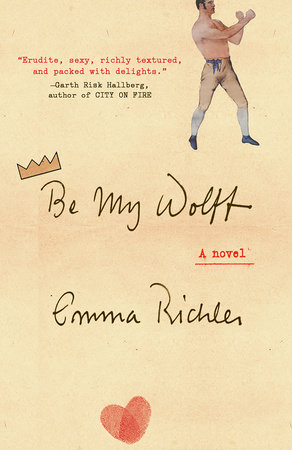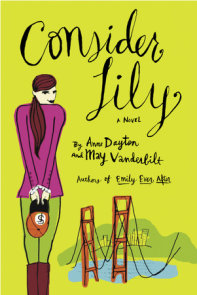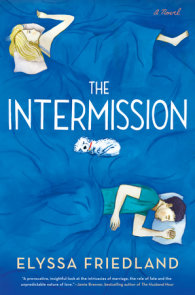READERS GUIDE
The discussion questions and suggested reading that follow are designed to enhance your group’s discussion of Be My Wolff, the captivating new novel by Emma Richler.Questions and Topics for Discussion
1. Early in the novel, readers are told that “for Rachel Wolff . . . there are patterns everywhere” (4), and Rachel’s father teaches her that patterns are clues. What are some of the patterns that Rachel observes? And what other patterns or motifs emerge throughout the novel? Do you think they serve as clues of some kind? Discuss.
2. A frequent refrain in the Wolff family is “everyone has a part and a destiny” (39). Does the book ultimately support or overturn the notion of fate? What does Lev believe about predictability and determinism, for instance? Do the lives of the characters seem to be shaped more by the characters’ choices or by forces beyond their control? Explain.
3. What is the game of “strange attractors” that Rachel plays with Zachariah and later with Aubry? How might Rachel and Zachariah fit into this game of strange attractors themselves?
4. Explore the fairy tales and folk tales presented in the novel. What characteristics do these stories share? What common characters and themes appear throughout? How do these stories treat the subjects of vice and virtue? What seems to be the purpose of the stories? Could the story of Rachel and Zachariah be considered a fairy tale or a folk tale? Why or why not?
5. What is a “native place”? Does the book answer the question of how one’s native place is determined? What does Katya mean when she realizes that the people in the procession in St. Petersburg might be able to tell “how one can never truly leave” and “never quite return” (227)? What is Rachel’s native place?
6. Explore the theme of grief. What do the characters mourn and how do they cope with their grief? Do they grieve in the same way(s)? Do any of the characters seem to find catharsis or relief? Discuss.
7. Evaluate the theme of memory. What do the characters tend to remember and reflect upon the most? What prompts these memories? Are the memories primarily positive or negative?
8. The phrase “What have I done?” recurs throughout the novel. What do the characters regret and what causes them to come to regret their actions? Are they able to do anything to reverse what they’ve done, alter the consequences, or otherwise diminish their regret?
9. Evaluate the structure of the book. How does the arrangement and organization of the storytelling help to illuminate the novel’s key themes? Explain.
10. The novel features several sibling relationships. How are these other relationships like the one shared by Zachariah and Rachel? Compare and contrast. Considered collectively, what do these relationships reveal about the bond between siblings?
11. The novel incorporates many real-life historical figures. Who are they and why are they relevant to the overarching story of Zachariah and Rachel? What might these characters reveal about time, history, and humankind?
12. Why was Lev originally opposed to the relationship between Zachariah and Rachel? Does Lev ever change his mind and come to accept their relationship? Is there any resolution to the friction between Lev and Zachariah?
13. Explore the theme of interconnectedness. Although the word interconnectednessdoesn’t appear as a subtitle until page 382 of the novel, where else is the theme of interconnectedness evident? Does the novel suggest what people and things are connected or bound by?
14. Evaluate the theme of exile. What kinds of exile are depicted in the novel, who is subjected to them, and why? What is the experience of exile like? Can you provide any examples of resolution, reunion, or homecoming following these characters’ exiles?
15. Who is responsible for Zachariah’s downfall? Would you say that it was avoidable? Why or why not? How does Rachel react? Does her reaction surprise you? Why or why not?
16. Many of the characters in the books are artists and musicians. Does the book suggest what the role or purpose of art and music might be? Explain.
17. Through Lev’s teachings and Rachel’s point of view, the book offers a glimpse into many different scientific disciplines—meteorology, physics, and anatomy, to name just a few. Do these disciplines support the notion of an orderly world or a chaotic one? What does the book seem to suggest also about humankind’s relationship to the natural world?





















